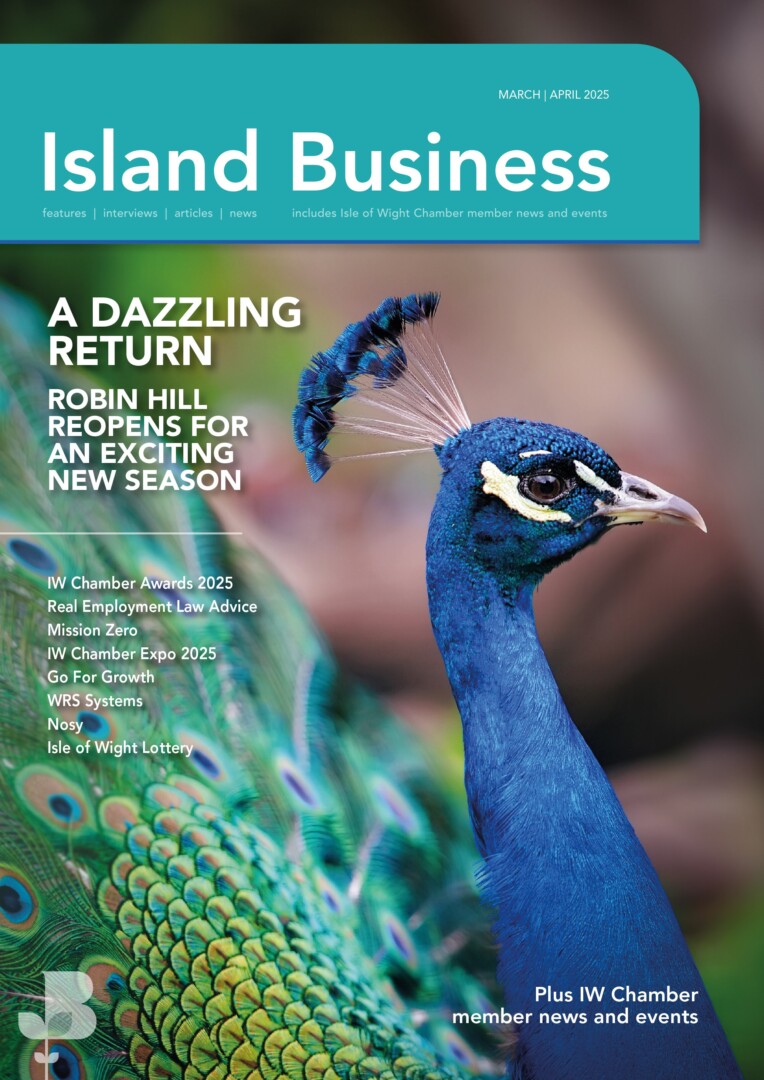The Chancellor has presented his Autumn statement – here’s reaction from the British Chambers of Commerce followed by the Solent LEP.
Giving his full reaction to the Autumn Statement, Adam Marshall, BCC Director General, said:
“Philip Hammond has delivered a responsible, solid and focused package that will reassure both business and markets.
“Increased resources for local and regional transport infrastructure, broadband, housing and innovation will boost business confidence at a critical moment. The Chancellor’s strong focus on the growth requirements of our cities, regions and nations will not go unnoticed in business communities across the UK.
“While business communities would have liked Philip Hammond to go even further to support growth, they will recognise that his hands are somewhat tied by lower tax receipts and sharply higher borrowing forecasts. The fact that he chose to commit significant new resources to support growth and productivity demonstrates welcome flexibility during a period of uncertainty and change.
“There was very little support in our business communities for further cuts to Corporation Tax, so Philip Hammond was right to stick with existing plans. However, we would have liked to see more action on the high up-front taxes and costs of doing business in the UK, particularly business rates.
“The government’s decision to move to a single annual set of tax and spending commitments will be welcomed by businesses weary of frequent and sometimes unclear changes of direction.”
Tax Measures
On business rates, Adam Marshall said:
“For rural businesses and those benefitting from the lower cap on annual increases following this year’s revaluation, the measures announced are welcome. However, British businesses will continue to pay the highest local property taxes in the developed world. Addressing this upfront burden is essential if they are to invest more in training, recruitment and growth plans – all essential to closing the ‘productivity gap’. Bringing forward the planned switch to CPI for up-rating from 2020 to 2017 would have helped and an opportunity to do this was missed.”
On fuel duty, Suren Thiru, Head of Economics and Business Finance, said:
“The continued freeze is positive news for businesses, particularly amongst smaller firms and the self-employed, for whom transport and distribution costs account for a significant proportion of their cost base.”
On Insurance Premium Tax, Suren Thiru said:
“Businesses across the UK will be disappointed by a further rise in the Insurance Premium Tax. This is yet another stealth tax on businesses, and increases the upfront cost of a critical safety net for firms.”
Spending commitments
On road and rail infrastructure investment, Adam Marshall, added:
“We are pleased that business calls for action on infrastructure have made an impact. It is now critical for these upgrades to begin without delay, as they are crucial not just to business confidence, but also to local and national growth prospects.
“Transport improvements have positive knock-on effects, as they open up supply chains, generate thousands of new contracts for UK businesses, as well as enhance access to labour and new markets.
“While we want to see ‘quick start’ projects delivered, we also need a long-term outlook. For that reason, business wants the government and the National Infrastructure Commission to plan for the delivery of major projects that can help prepare the economy for the future.”
On export support, David Riches, Executive Director said:
“We welcome the announcement of additional finance and insurance support by UK Export Finance, which should provide valuable help to UK exporters. However, this is not sufficient to improve our ambition to get more businesses to export – and increased direct support such as enabling businesses to attend trade missions, trade fairs, commission market research or make themselves export ready would have been an important additional boost to companies.”
On broadband digital infrastructure and 5G, Fiona Krasniqi, digital spokesperson, said:
“We’ve been calling for years for the necessary funding to improve business broadband connections and develop 5G, so these announcements are a big step in the right direction.
“Fibre to the premises (FTTP) is the future – businesses need faster and more reliable broadband across the UK. We hope the 100% business rates relief for new full-fibre infrastructure will encourage better business connections, because the current reliance on old copper lines hold too many businesses back.
“The UK is still some way behind delivering access to a world-class digital infrastructure to businesses in all parts of the country. The government’s focus must now be on addressing the lack of superfast broadband to new and existing business parks. Rectifying this would go some way to boosting business confidence.”
On research and development, Mike Spicer, Director of Research and Economics, said:
“Increasing investment in research and development will provide a boost to the UK economy at a time when productivity growth remains weak. However, to ensure that UK firms remain competitive on the global stage it is vital that greater investment in research and development is supported by retention of our intellectual property.”
On housebuilding, Adam Marshall said:
“The chancellor has already committed investment to tackle the housing shortage in this country. Helping to meet the demand for housing is one of the ‘quick-start’ infrastructure projects we’ve been calling for. But local business confidence will only be boosted as a result when firms start to see diggers in the ground.”
Policy Announcements
On the National Living Wage, Marcus Mason, Head of Business, Employment and Skills, said:
“Most businesses already pay above the National Living Wage but for the others the latest increase comes at a time when businesses are already facing a myriad of other upfront costs and uncertainty about investment and recruitment. It’s therefore right that the government has re-adjusted the trajectory of the planned National Living Wage increase in line with changes in economic circumstances.
“Our research shows that sharp increases in the National Living Wage will cause many firms to implement cost reduction measures, such as reducing recruitment and staff hours or increasing prices. It’s important the government retains a similarly flexible approach going forward which will protect businesses and jobs.”
On productivity and the Charlie Mayfield Review, Adam Marshall said:
“It’s no secret that many UK businesses are not as productive or effective as they could be, and need to do better. Chambers across the UK look forward to working with Charlie Mayfield and others on initiatives to boost productivity, investment and growth within firms.”
On local growth, Mike Spicer said:
“The explicit support for devolved funding and powers confirmed by the Chancellor is beneficial to businesses when local decision-making means greater efficiency, accountability and results. But to achieve these optimal results, the voices of businesses must be heard in devolution discussions.”
On the Buffini Review into patient capital, Adam Marshall added:
“For years we have highlighted the difficulties that fast-growing businesses have in getting access to patient capital for expansion, so we welcome the Treasury initiating a review of patient capital. Solutions to this long-standing problem will be critical to growing the business champions of the future.”
This is the response from the Solent LEP:
Chancellor Philip Hammond’s Autumn Statement today marks the first major economic statement of the new Government since the Brexit vote. In the Solent area, the Solent LEP is monitoring progress for the local economy to understand the local impact of national spending decisions, new Government policy and the Brexit vote.
Brexit has shifted the economic landscape of the UK economy, bringing uncertainty across a range of issues, not least the position the UK will take with the EU once article 50 has been triggered and the UK formally splits from the EU. Latest local forecasts in the Solent suggest growth and jobs will continue to be driven by service-orientated sectors such as professional, scientific and technical activities; and information and communications.
Growth and jobs forecast for most regions in the UK, including the South East, have been revised down, though we still expect the South East to grow faster than the UK average, creating an additional 470,000 jobs by 2036. However, the economy is predicted to continue to grow broadly in line with national averages, with GVA growth expected at 2%pa to 2036.
The Solent LEP would like to see an upturn in economic performance and it is our ambition to see the Solent grow rapidly and to continue to make a significant contribution to the economic output of the region and the country as a whole. To achieve this, the area will need to concentrate its economic activity into what it does best by developing its specialist sectors, where the Solent has a comparative advantage such as in Marine and Maritime, and through developing the SME base in the area.
Since the agreement of the Solent Growth Deal, the Solent LEP have been working hard to help this world-class area achieve its full potential and remains committed to building on this progress by working with Government to agree a further Local Growth Deal settlement for the area.
In advance of the autumn statement, Government have confirmed an allocation to the area to allow the LEP provide additional Grant Funding support to SMEs with high growth potential and, following launch of the Solent Growth Fund on 5th December, the Solent LEP expects to expand the funding available for local businesses early in the new year.



